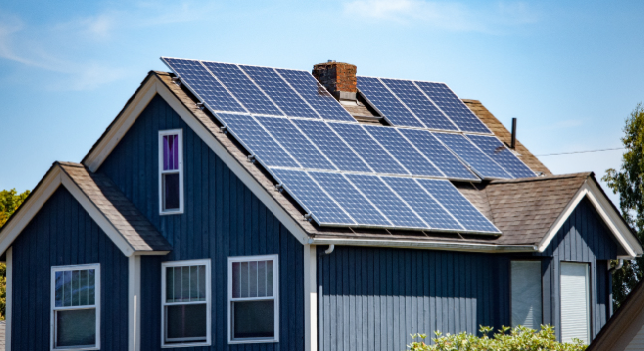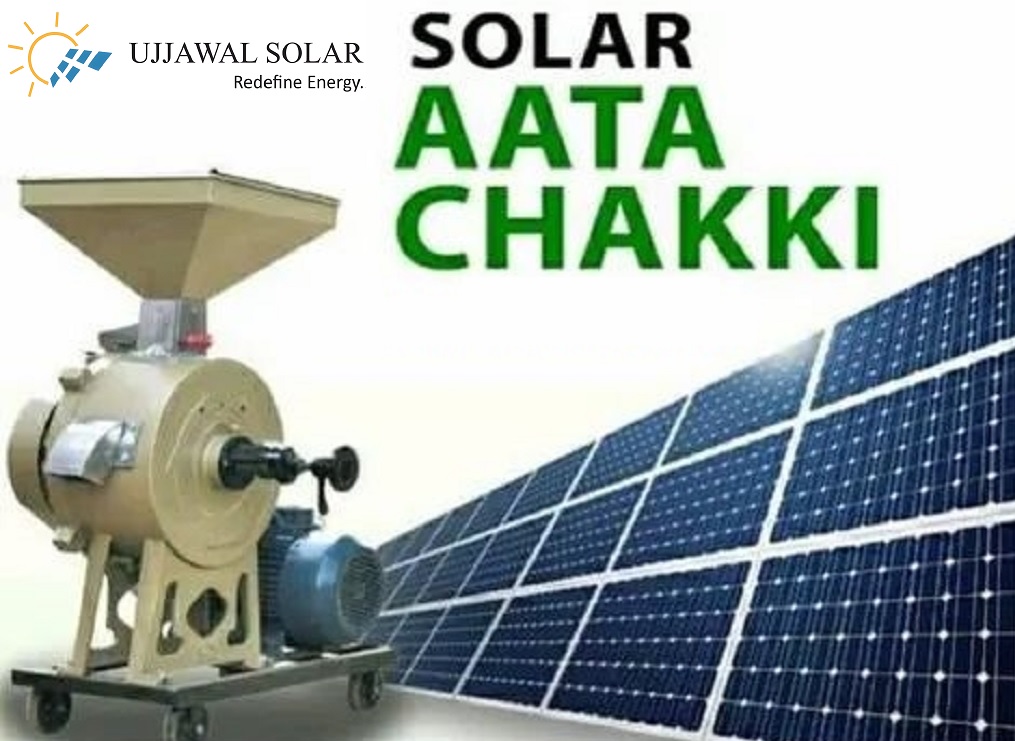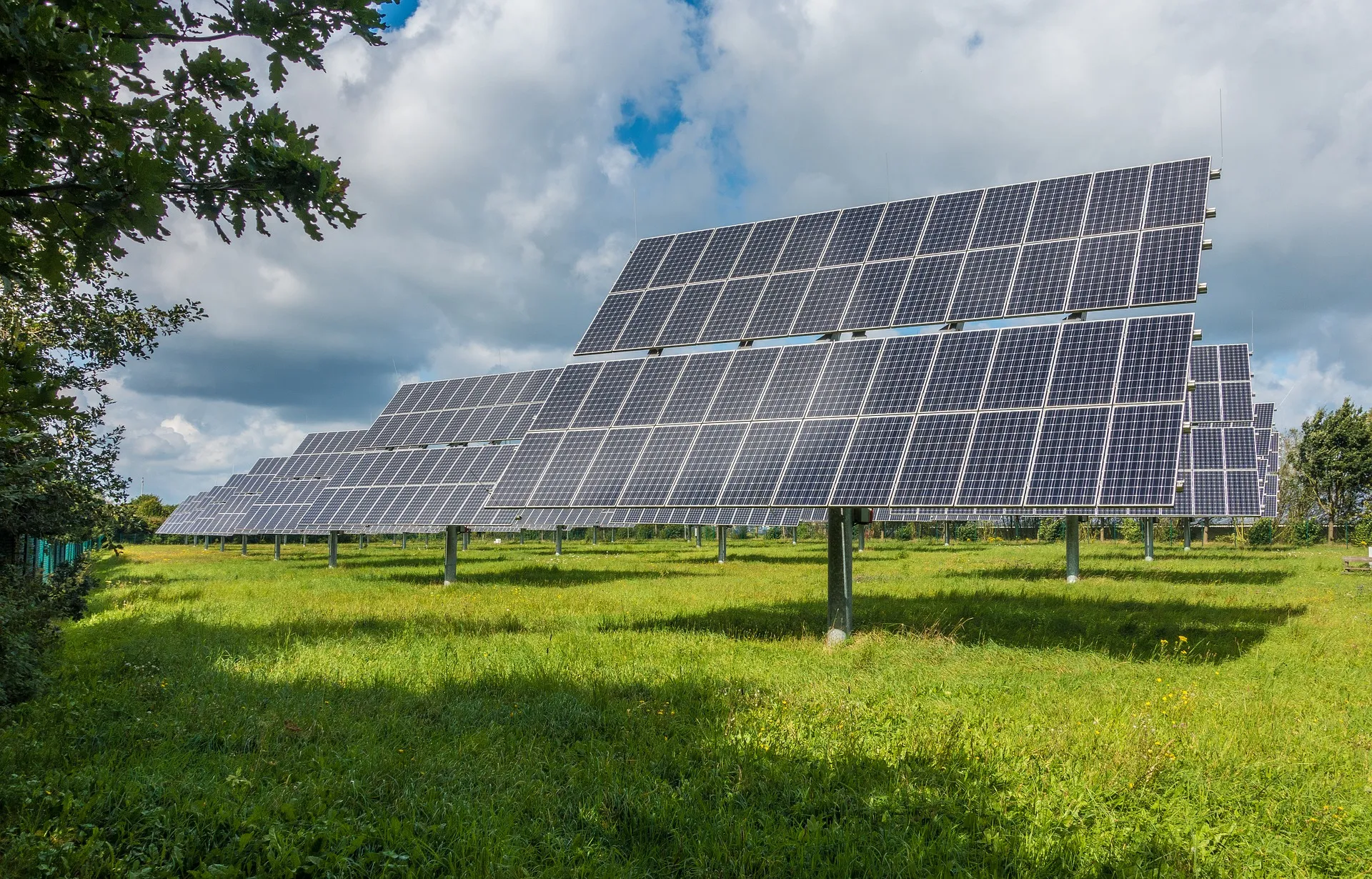Differences Between On Grid And Off Grid Solar Systems – A solar system uses sunlight to generate electricity for household use. It typically consists of photovoltaic (PV) panels installed on the roof or ground of a home, a mounting structure to secure the panels, an inverter to convert the DC electricity generated by the panels into usable AC electricity, and sometimes battery storage to store excess energy for later use.
These systems offer homeowners a clean, renewable energy source that reduces dependence on traditional grid-supplied electricity, thereby lowering electricity bills and reducing carbon footprint. Additionally, many governments offer incentives, tax credits, and rebates to encourage the adoption of residential solar systems, making them increasingly affordable and accessible. With advancements in technology and decreasing costs, solar systems for homes have become a viable and popular option for sustainable energy generation.

Difference Between On Grid And Off Grid Solar System
In this article we describe the Difference Between On Grid And Off Grid Solar Systems so please read the complete article to know the difference between on grid and off grid solar systems.
On-Grid Solar Systems: Tied to the Grid
1. Connection to the Grid: On-grid solar systems are directly connected to the electrical grid. This means they operate in tandem with the local utility’s power supply. During the day, solar panels generate electricity, which can be used to power appliances and devices in the home or business. Any excess energy not immediately consumed is fed back into the grid.
2. Absence of Battery Storage: One key feature of On grid Solar system is the absence or minimal presence of battery storage. Since these systems rely on the grid as a “virtual battery,” surplus energy is exported to the grid, and electricity is drawn from the grid when solar production is insufficient.
3. Net Metering Benefits: On-grid systems often benefit from net metering policies. With net metering, surplus electricity sent back to the grid earns credits for the system owner. These credits can offset electricity costs during periods of low solar production, such as at night or on cloudy days.
4. Cost-Effectiveness: On-grid systems are generally more cost-effective than their off-grid counterparts. They require fewer components and installation complexities since there’s no need for expensive battery storage. Additionally, potential savings from net metering can further reduce the payback period for the initial investment.
5. Reliance on the Grid: One limitation of on-grid systems is their reliance on the grid. They do not provide backup power during grid outages unless equipped with specialized inverters and battery storage systems. Safety regulations often require on-grid systems to shut down automatically during outages to prevent backfeeding electricity into the grid.
Off-Grid Solar Systems: Independent Energy Solutions
1. Standalone Operation: Off-grid solar systems, as the name suggests, operate independently of the electrical grid. They are commonly used in remote areas where grid connection is not feasible or cost-effective. Off-grid systems provide a reliable source of electricity even in locations far from utility infrastructure.
2. Battery Storage Essential: Unlike on-grid systems, off-grid setups rely heavily on battery storage. Excess energy generated during the day is stored in batteries for use when solar production is low or nonexistent, such as during the night or on overcast days. The size of the battery bank determines the system’s capacity to store and deliver electricity.
3. Continuous Power Supply: Off-grid systems offer continuous power supply, even during grid outages. This makes them ideal for applications where uninterrupted electricity is crucial, such as in remote cabins, RVs, boats, or critical infrastructure facilities.
4. Higher Cost and Complexity: Off-grid solar systems tend to be more expensive and complex compared to on-grid systems. The cost of battery storage and additional components required for standalone operation can significantly increase the initial investment. Careful planning and design are essential to ensure the system can meet the energy demands of the user without grid backup.
5. Suitability for Remote Areas: Off-grid systems are particularly suitable for remote areas with unreliable or nonexistent grid infrastructure. Off grid solar system an independent energy solution that frees users from dependence on centralized power grids and diesel generators.
Conclusion – Both on-grid and off-grid solar systems offer distinct advantages and serve different needs. On-grid systems are well-suited for urban and suburban areas with reliable grid infrastructure, offering cost-effective solutions and potential savings through net metering. In contrast, off-grid systems provide independence and reliability, making them ideal for remote locations and applications requiring continuous power supply.









